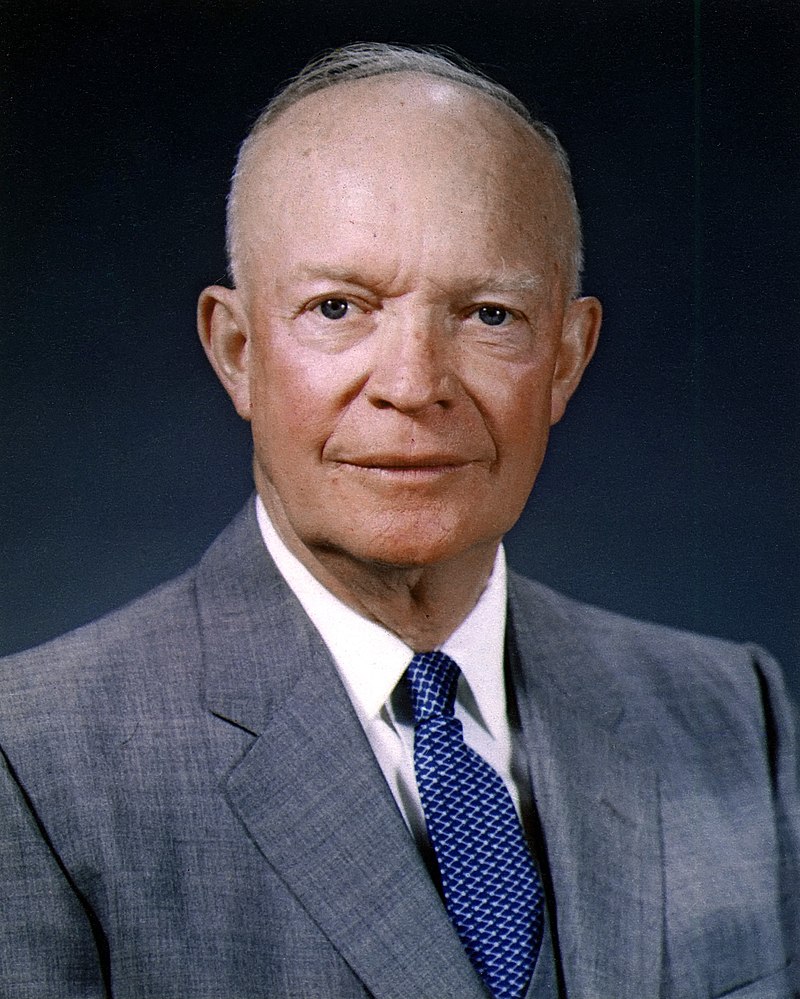Dwight David Eisenhower, also known as “Ike” or “Duckpin,” was the thirty-fourth President of the United States, serving from 1953 to 1961. His presidency spanned the Cold War Era events and Space and the Cold War Arms Race eras. He was a member of the Republican political party, which guided his administration’s domestic and international policies.
Aside from his achievements and contributions, who is he? What characteristics and traits does this accomplished leader hold? You will find it out in this article.
Where did he get the nickname “Ike”?
According to family members, any son in Dwight Eisenhower’s nuclear family was named “Ike” at some stage during their youth. Edgar was known as “Big Ike,” while he was known as “Little Ike.”
President Dwight D. Eisenhower’s nickname gives insight into how the American public regarded him during his administration. The nickname was used in his presidential campaign with the slogan “I Like Ike.”
He was described to stood five feet and ten inches. He had fair skin, blue eyes, light brown hair, square shoulders, and big hands, despite being almost entirely bald as president. His broad smile was his most defining attribute. Dwight Eisenhower was wearing a pair of reading glasses. As a result of a football accident, he had a trick leg.
Supportive and Helpful
Dwight Eisenhower has a lot of respect for people and tries to help them. He is a healer and capable of offering support to those in need; he often lends a shoulder to weeping. But rather than being a compassionate ear, Ike’s life goal is to learn the skills that will allow him to be genuinely helpful to others. Dwight D. Eisenhower must strike a delicate balance between assistance and intervention, as well as the delicate art of the psychologist, who decides when to leave the struggle to others and when to stop taking away necessary life experiences and teachings.
He was regarded as a universal helper who generously shared his wisdom, expertise, time, and energy with everyone who needed it, particularly his friends and family. He strives for win-win scenarios at all times, preferring consideration over judgment wherever possible.
Patient, Reliable and Likable
Dwight Eisenhower’s nature is to take on responsibilities, to fill voids left by others, and not to forget the personal sacrifice, even though he may feel overburdened by others’ travails at times. Others’ admiration, on the other hand, is his well-deserved reward.
Dwight Eisenhower was meticulous and patient, taking a steady strategy and bending for the moment’s needs just enough to achieve his end goals rather than giving erratic, enthusiastic runs that left it half-finished. Eisenhower not only guarantees that tasks are performed to the best possible level, but they also step beyond and above the call of duty.
Practical and Versatile
Dwight Eisenhower has the decency to put all of this goodwill to use. Suppose tedious and repetitive activities must be completed. In that case, he will appreciate the elegance and peace that they provide, knowing that it allows him to better care for his friends, relatives, and everyone else in need.
He was open to new concepts as long as they were logical and backed by proof. He was drawn to offbeat or contrarian points of view because he was skeptical by inclination. He was also able to change his mind if the truth proved him wrong.
Overly Critical and Combative
He was very self-controllable, mainly when it came to his thoughts and feelings. He became scathingly cynical as individuals and subordinates struggled to match his level of restraint. However, this criticism is often unjustified since it focuses on abstract criteria rather than a comprehensive view of human existence.
He despises the following something without knowing why. This covers the limitations he was exposed to as well as the people who put them on him. He was always engrossed in debates about pointless laws and legislation, but these fights may be diverted from more pressing issues.
Needs to be Needed
Ike had a lovely marriage and was a great father, providing his children with comfort, security, and understanding. However, he did not enable sentimentality to affect his decisions, mainly when choosing a spouse. Dwight D. Eisenhower wanted to be needed, so he sought to distinguish between those he could support and those that his presence would harm. After all, it’s in Ike’s character to gravitate toward the poorer members of our society. President Eisenhower’s incentive is to imagine himself as the world’s hero, shouldering the hardships of others.
Conclusion
He was an inspirational and influential leader who served as a role model for others. His leadership style was diverse, deliberate, and learned. He exuded a sense of simplicity. He was consciously projecting the impression of a Kansas farm boy. However, he could be a detached, knowledgeable, and thorough analysis of issues and personalities based on a broad and sophisticated knowledge base and extensive research. He seemed to be above politics; however, he read, comprehended, and operated on political issues and considerations with more rigor than any lifetime politicians do.
His magnetic charm to millions of people appeared to come quickly and seamlessly due to his upbeat demeanor. He did, however, work on his apparent lack of artistic ability. He felt it was the vital obligation of a leader to exude hope constantly, but his big smile and bouncy walk frequently disguised sadness, doubt, and absolute exhaustion. He made it a habit to keep all of his questions hidden under his pillow.
Related Posts
Presidency and Policies of Dwight Eisenhower
Dwight Eisenhower’s First Lady
Dwight Eisenhower’s Children and Descendants

